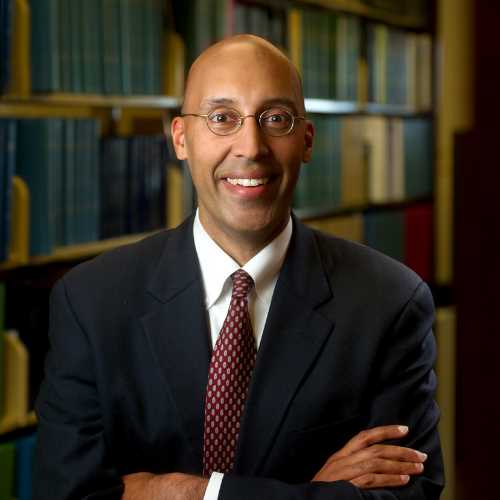
Gurpreet Dhaliwal
- Professor of Clinical Medicine at the University of California, San Francisco
- Expert on Decision-Making and How People Think
- University of California- San Francisco Osler Distinguished Teacher Award-2019
In Person-Fee 🛈
$10,000 - $15,000
Virtual Fee:
$7,500 - $10,000
Travels From
California
Gurpreet Dhaliwal Speaker Biography
Gurpreet Dhaliwal, MD is a professor of medicine at the University of California San Francisco. He studies how doctors think – how they diagnose, how they make treatment decisions, and how they develop expertise. Considered one of the most skillful diagnosticians and clinician-educators in the U.S. today, he regularly mesmerizes audiences of hundreds of medical professionals as he correctly diagnoses cases meant to stump participants. The New York Times said, “To observe him at work is like watching Steven Spielberg tackle a script or Rory McIlroy a golf course.”
In presentations, Dr. Dhaliwal shares insights on how we think – and how that affects the quality of our decision-making—from what facts you ignored or included and what shortcuts your mind took to what biases affected your decision and what forces shaped it (tradition, evidence, habit). Believing that examining our thinking is how we develop knowledge, wisdom, curiosity and humility, Dhaliwal impresses audiences with his poise, humor, and ability to articulate his real-time thinking in an accessible way.
Medical Marvel. Dr. Dhaliwal sees patients and teaches medical students and residents in the emergency department, inpatient wards, and outpatient clinic at the San Francisco VA Medical Center, where he often puzzles through multiple mysteries at a time.
He has recieved multiple teaching awards, including the 2019 UCSF Osler Distinguished Teacher Award and the national Alpha Omega Alpha Robert J. Glaser Distinguished Teacher Award.
In 2012, he was profiled in the New York Times article “Could a Computer Outthink This Doctor?” He currently writes for the Wall Street Journal’s Health Report blog.
Dr. Dhaliwal is a member of the UCSF Academy of Medical Educators and the UCSF Department of Medicine Council of Master Clinicians. He has won multiple teaching awards and has published more than 70 articles in leading medical journals including the New England Journal of Medicine and the Journal of the American Medical Association. He has been a visiting professor at multiple universities across the U.S. and in China and Japan.
He writes and speaks on physician leadership, physician engagement, and the need for physicians to engage in high-value care.
How AI @ Work Will Advance Human Intelligence. AI systems in healthcare are transforming the ways we communicate, collaborate, and generate revenue. To capitalize on this revolution, health systems need to rethink their data systems and readiness, clinician training and engagement, and ethical frameworks. Dr. Dhaliwal will address each of these and ask what comes next when AI makes us better, stronger, and faster.
How Doctors Think: Implications for Quality, Cost, and Safety. Health care systems need physician engagement to deliver high value care. In order to engage the profession and change the way physicians view their role in an organization, managers and leaders need to understand the psychological forces that govern physician behavior. In this talk, Dr. Dhaliwal discusses the powerful influences of social norms, uncertainty (including malpractice), and professional identity and how these forces can be leveraged to engage physicians in system-wide goals and initiatives, including the effects on healthcare reform.
Can Computers Diagnose? Even since IBM's Watson supercomputer defeated human Jeopardy champions in 2011, the medical world has been abuzz about the possibility that a supercomputer can one day diagnose patients. With technological developments like driverless cars and the promise of Big Data, this seems like a forgone conclusion. In this talk, Dr. Dhaliwal examines the reality of teaching a computer how to diagnose the human condition. He touches on the promise and challenges of a diagnostic droid and raises the question of which is more remarkable: the computer and its artificial intelligence, or the human brain it’s trying to emulate?
The Physician Leadership Imperative. Health care systems need physician leadership in order to effect change. Physicians and non-physicians alike may equate “leadership” with major administrative and organizational positions. In this talk, Dr. Dhaliwal outlines a broader view of leadership with examples of the many ways physicians can and must lead – in their own clinic, in their group, or in their organization. The theme of the coming change in the medical profession’s identity is integrated throughout.
Inside the Diagnostician’s Mind. The most expensive piece of equipment in all of medicine is the physician’s mind. Years of study and hundreds of thousands of dollars are invested into its development, and the decisions it makes drive most of the dollars spent in health care. In this talk, Dr. Dhaliwal provides a “user’s guide to the brain” and shows how physicians navigate between pattern recognition and analytical thinking when making medical decisions. Both the hope and hype around information technology solutions (e.g, IBM Watson) are discussed.
Clinical Judgment: Good to Great. A physician’s diagnostic and therapeutic skills are a core part of their identity, a source of professional satisfaction, and a major driver of health outcomes (good and bad) and expenditures. In this talk, Dr. Dhaliwal emphasizes the difference between becoming an experienced physician and expert physician. He outlines action steps that physicians can adopt from other professions who engage in career-long continuous improvement of their decision-making skills. Clinicians and non-clinicians leave the talk understanding how they can go from good to great.
ADDITIONAL TOPICS
Social Determinants of Health and Health Equity
Social Determinants of Health: What Clinicians Can Do
Health Equity in Medicine
Upstander Training
Quality, Safety, High-Value Care
How Doctors Think: Implications for Quality, Cost and Safety
How Doctors Think: Implications for Creating a High-Performing Organizations
Engaging Physicians to Deliver High-Value Care
Technology
Can Computers Diagnose?
Frontline Challenges in the New Era of Health IT
Teamwork & Communication
Physician Feedback
Consults in Medicine: Conflict & Collaboration
Are You on a Team?
Physician Leadership
The Physician Leadership Imperative
Physician Leadership and The Stretch
Workplace Engagement & Connection to Purpose
Reigniting Kindness & Respect at Work
Physicians at Work: Reigniting Purpose & Mastery
Clinical Judgement: Good to Great
Engaged at Work













